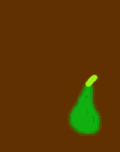



Purpose: Since the invention of the refrigerator, food spoilage has been relatively minimized. However, for those outside the pleasure of electricity must conceive new methods to keep food from going bad. This week, Scientific AmeriKen will attempt several methods in preventing black berries from spoiling.
![]()
Hypothesis: Generally there are two agents of food spoilage, bacteria and mold. It is the hypothesis of this experiment that foods can be kept longer if agents are used which prevent the growth of bacteria or mold. Therefore it is believed that agents such as sugar, salts, and algaecides will be efficient in food spoilage prevention.
![]()
Equipment: Used in this experiment was 6 blackberries, salt, sugar, hydrogen peroxide, Leslie's algae control, and petri dishes.
![]()
Procedure: The first step of this experiment is to set 2 berries aside for controls. Soak 1 berry in the hydrogen peroxide and one berry in the Algaecide. Roll one berry in salt and the last berry in sugar. Set the berries aside and observe for spoilage.
![]()
Results:
| Berry Tested | Observations |
| Control #1 | Mold first observed after 10 days |
| Control #2 | Mold first observed after 11 days |
| Salted | Mold first observed after 6 days |
| Sugared | Mold first observed after 6 days |
| Peroxided | Discoloration after 3 days, mold after 6 days |
| Algaecided | No mold after 15 days (test concluded) |
![]()
Conclusion: Based on the results, it would seem that the best method for preserving the blackberries would be just to leave them alone. Perhaps if a safe algaecide (or fungicide) could be created then an effective method of preventing food spoilage would be feasible. However, based on the number of warning labels on the algaecide used, the creation of such an item may take quite a while.